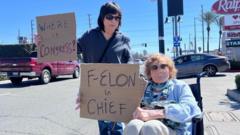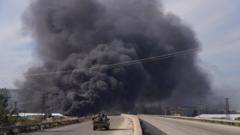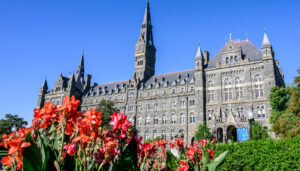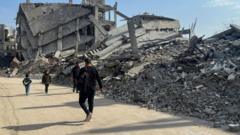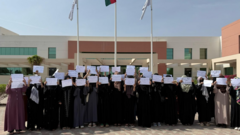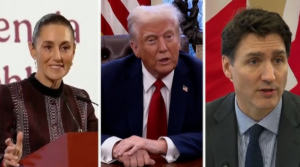In Panama City, 299 undocumented migrants deported from the U.S. are held in a luxury hotel under strict security, displaying distress signals and fearing for their return to unsafe homelands. The Panamanian government manages their situation, where many seek political asylum or safe passage to another country.
Desperate Pleas from Deported Migrants Held in Panama Hotel

Desperate Pleas from Deported Migrants Held in Panama Hotel
Undocumented migrants from various countries are detained in a Panama hotel, raising alarm for their safety and future.
In a striking scene at the Decápolis Hotel in Panama City, a pair of young girls pressed a makeshift sign to the window, reading "Please help us." This luxury hotel, known for its stunning sea views, exclusive amenities including two restaurants, a pool, and spa, has transformed into a "temporary custody" center, as per the Panamanian government, for 299 undocumented migrants recently deported from the United States.
The migrants, many of whom displayed their despair by crossing their wrists—an act signaling they are deprived of freedom—have resorted to displaying messages like "We are not safe in our country" in a desperate plea for help. The surging number of deportations aligns with the Trump administration's tough stance on immigration, promising to send millions back to their countries. Following an agreement by Panama’s President José Raúl Mulino, the country has assumed the role of a "bridge" for these deportees.
Among the individuals housed in the hotel are nationals from India, China, Uzbekistan, Iran, Vietnam, Turkey, Nepal, Pakistan, Afghanistan, and Sri Lanka; however, only 171 have expressed willingness to return home. This leaves a group of individuals facing an uncertain fate as authorities dictate the next steps.
On any regular day, a tourist might stroll in and out of the hotel freely; today, heavily armed officers of the Panamanian National Aeronaval Service enforce stringent security protocols. From the streets below, messages of distress send ripples through the community. Adults and children display their need for assistance, even communicating through the window in stark acts of desperation—one notable scene featuring children holding up sheets with "Please save the Afghan girls."
An Iranian woman, who has been living in Panama for several years and requested anonymity, spoke to the BBC after gaining access to a migrant inside via illicit phone communication. "They are terrified of returning to Iran," she revealed, describing the constrained living conditions. Reports indicate that inside the hotel, families are cut off from legal counsel and face severe restrictions including being confined to their rooms with limited access to food.
In response to BBC inquiries about the situation, the hotel and government remained silent, but Minister of Public Security Frank Ábrego stated that the migrants are being kept away from public view to ensure the safety of the Panamanian people. Video footage from one of the migrants surfaced online, revealing her dire context of seeking asylum from Iran, fearing government reprisals.
Minister Ábrego further noted that individuals unwilling to return home must select a third country, with organizations such as the International Organization for Migration (IOM) and the United Nations High Commissioner for Refugees (UNHCR) facilitating repatriation processes.
Amid these humanitarian concerns, the IOM emphasized its commitment to ensuring the humane treatment of deported individuals while supporting voluntary returns and identifying safer alternatives. The presence of these migrants at Decápolis Hotel highlights the ongoing complexities of international migration and the ripple effects of U.S. policy abroad.
Experts acknowledge the challenges in negotiations with countries of origin, suggesting that by placing deportees in Panama, the U.S. is strategically distancing itself from the ongoing issue, navigating a diplomatic labyrinth that Panama must now manage. A flight of deportees is also expected to arrive in Costa Rica soon, as regional dynamics continue to shift amidst ongoing immigration pressures from Washington.

